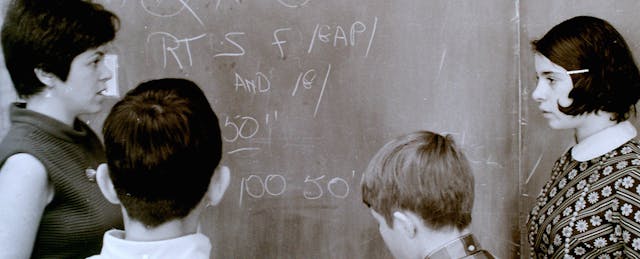Today there are numerous well-intentioned attempts to “get girls into S.T.E.M.” Yet, often there is too little action taken—beyond conference presentations and blog posts about the topic. One way we might help increase the number of women in technology is by honoring the industry’s pioneers.
On May 16th at its annual summit in Redrock Canyon, Nevada, the National Center for Women and Information Technology (NCWIT) did just that. NCWIT honored Dr. Cynthia Solomon with its Pioneer Award in long-overdue recognition of her contributions to both information technology and the role she played in bringing computing experiences to children.

Dr. Solomon’s professional journey defied the odds. In the early 1960s, she graduated from Radcliffe with a history degree. She was extremely interested in computer programming, but that was not something women did back then. A friend of Solomon’s helped her land a job as a secretary to MIT professor and artificial intelligence pioneer, Dr. Marvin Minsky.
While working at MIT, Solomon taught herself to program in LISP. A few years later, she, along with Seymour Papert, Wally Feurzig and others, invented the first programming language for children—Logo. If Seymour Papert is the father of educational computing, as is widely accepted, then Cynthia Solomon is certainly the mother of educational computing!
Not only did Solomon help create the first programming language for children, but she developed many of the pedagogical approaches and activities we currently use to teach students to use computers. Forty five years later, Logo is still in use by millions of children around the world in the form of Scratch, MicroWorlds, Snap! and other dialects. Solomon and Papert’s 1971 paper, Twenty Things to Do with a Computer, remains provocative today and lays the foundation for the Maker Movement sweeping the globe.
Solomon went on to cofound Logo Computer Systems, Inc., an educational software company still in existence after more than 30 years; while there she helped create Apple Logo. Together with Margaret Minsky and Brian Harvey, she published LogoWorks: Challenging Programs in Logo, which demonstrated the sorts of sophisticated computer science projects in which kids could engage. It remains the gold standard in many ways.

Throughout her career, Solomon has been committed to introducing creative computer education to students and educators. Her doctoral thesis eventually became the seminal book on computers in education, Computer Environments for Children: A Reflection on Theories of Learning and Education. More recently she has worked with the One Laptop Per Child Foundation to develop learning activities for computing in the developing world. Currently, Solomon is Senior Fellow at Constructing Modern Knowledge.
But first and foremost, she is a pioneer.


